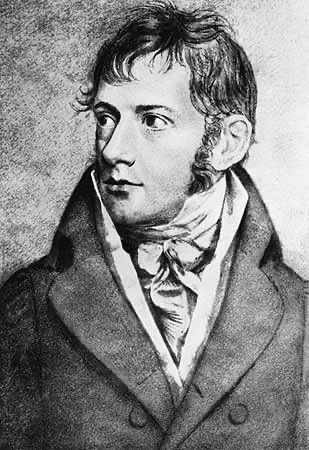Below is a description of some of my recent pieces on Kant’s theory of consciousness and its reception in relation to the understanding of religion. Click on other parts of this web site for descriptions of some of my other recent work.

F. Schleiermacher
"That first mysterious moment that occurs in every sensory perception, before intuition and feeling have separated, where sense and its objects have, as it were, flowed into one another and become one, before both turn back to their original position – I know how indescribable it is and how quickly it passes away. . . . . Even as the beloved and ever-sought for form fashions itself, my soul flees towards it; I embrace it, not as a shadow, but as the holy essence itself. I lie on the bosom of the infinite world. At this moment I am its soul, for I feel all its powers and its infinite life as my own; at this moment it is my body, for I penetrate its muscles and its limbs as my own, and its innermost nerves move according to my sense and my presentiment as my own…. This moment is the highest flowering of religion.” Friedrich Schleiermacher, On Religion.
- “Religion and Romanticism,” for the Palgrave Handbook of Early German Romantic Philosophy, edited by Elizabeth Millán, forthcoming. This paper explores the reception of Kant’s understanding of consciousness by both Romantics and Idealists from 1785 to 1799, and traces its impact on the theory of religion. I first look at Kant’s understanding of consciousness as developed in the first Critique, and then look at how figures such as Fichte, Jacobi, Hölderlin, Novalis, and Schleiermacher received his theory of consciousness and its impact on the understanding of religion. Available on Academia.
- “Selfhood and Relationality,” in The Oxford Handbook for Nineteenth Century Christian Thought, edited by Joel D. S. Rasmussen, Judith Wolfe, and Johannes Zachhuber, OUP 2017. Available on Academia. This paper explores how nineteenth century Christian thought about self and relationality was stamped by the reception of Kant’s groundbreaking revision to the Cartesian cogito. For Kant, consciousness is not a substance but an ongoing activity having a double constitution, or two moments: first, the original activity of consciousness, what Kant would call original apperception, and second, the reflected self, the “I think” as object of reflection. Both are essential to the possibility of an awareness of a unified experience. Such an awareness is achieved only insofar as the self is capable of reflecting on its activity of thinking. As such, the possibility of self-consciousness, or the capacity to reflect on one’s own acts of thought is essential to the constitution of the self. This new model of the mind became the starting point to the thought of central 19th century figures such as Friedrich Schleiermacher (1768-1834), J. G. Fichte (1762-1814), Friedrich Hegel (1770-1831) and Søren Kierkegaard (1813-1855). This chapter explores their reception of Kant’s model of self-consciousness, the controversies surrounding its development and exposition, and the advantages of this model for theological reflection. The idea of mind as essentially capable of reflection provided an account of how the self can stand in an ontologically immediate relation to God constitutive of the self, while at the same time allowing that the self’s consciousness of itself is distinct from this original moment, so that a limited or false consciousness of self is possible. As such the task of the self is to recognize (that is, to realize in and through self-consciousness) who it most truly is, both in relation to God, and in relation to self and other.
- “Where Have all the Monads Gone? Substance and Transcendental Freedom in Schleiermacher,” in Journal of Religion, Vol. 95, No. 4 (October 2015) pp. 477-505. Available on Academia. The article explores the later Schleiermacher’s metaphysics of substance and what it entail concerning transcendental freedom; I also look at Schleiermacher’s reception of Kant’s understanding of consciousness and the role it plays in relation to this issue.